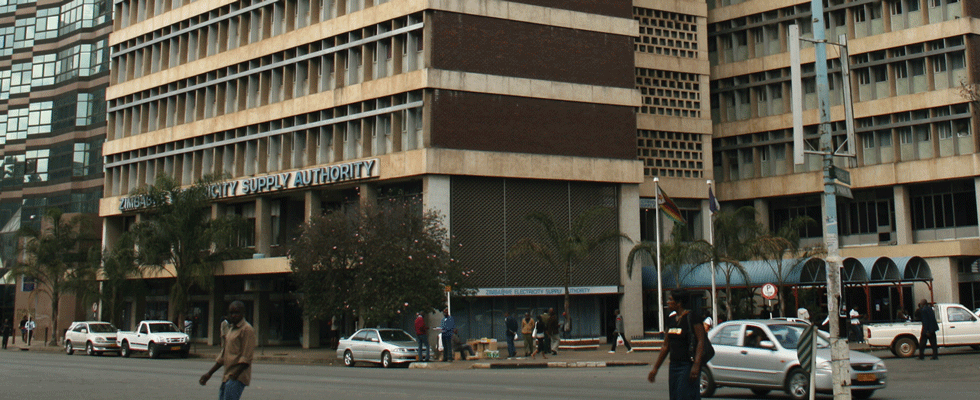
WHILE the recent introduction of pre-paid meters by power utility, Zesa, has been hailed as a relief in most circles as consumers are now able to regulate their consumption levels, the system has created a new headache for industry and multiple tenants sharing one power source.
Report by Veneranda Langa.
Since last year, Zesa has been rolling out pre-paid meters and smart meters in a bid to inculcate a culture of energy saving and to ensure guaranteed cash inflows as consumers pay in advance.
The power utility said it aims to have installed 600 000 units by year-end and be able to ease the country’s power shortages.
However noble the system is, industry feels cheated because of its high energy requirements.
“The only challenge with pre-paid meters is on industry because consumption of electricity is much higher there with some companies using $5 000 worth of electricity per month,” said chairman of the Mines and Energy Parliamentary Portfolio Committee Edward Chindori Chininga.
In some households where there are many lodgers, it has created animosity and “little wars” as each family has different consumption levels.
People interviewed by NewsDay said the post-paid system was less efficient in that most consumers received estimated bills that were highly disputed.
- Chamisa under fire over US$120K donation
- Mavhunga puts DeMbare into Chibuku quarterfinals
- Pension funds bet on Cabora Bassa oilfields
- Councils defy govt fire tender directive
Keep Reading
Residents of Harare who already use the prepaid meter system said their electricity bills had significantly gone down.
Auxillia Chineka from Unit N in Chitungwiza said she was now able to manage her electricity consumption after she had a pre-paid meter installed at her home.
“I share my house with another family and previously, with the post-paid system, our monthly electricity bill was as high as $120 per month as it was based on estimates. With the prepaid system I spend $40 per month on electricity,” said Chineka.
Irene Makuku from Belvedere said she used to spend $300 per month, but with the prepaid system the electricity bill had now gone down to $250.
“I found out that geysers and gadgets like stoves use a lot of electricity and my advice to people with pre-paid meters is that they switch those off whenever they are not using them,” Makuku said.
A Kuwadzana 5 resident Tendai Sibanda said three households were sharing the house and they had discussed among themselves to ban the cooking of beans, dried vegetables (mufushwa) and meat such as bones which required a lot of boiling resulting in more usage of electricity.
Some sections of society feel that the pre-paid electricity system will help deal with the issue of defaulters, most of them government ministers and senior officials who owed thousands of dollars in electricity bills accrued at their farms.
According to Energy and Power Development minister Elton Mangoma, the power utility is owed over $450 million by customers.
“This is revenue that could be used to pay for electricity imports, purchasing of spares for infrastructural maintenance, fund for coal deliveries among other areas for the good of the nation,” Mangoma said.
Small businesses also hailed the system, saying it forced them to use power sparingly.
Managing director of the Small and Medium Enterprises International Expo Delight Makotose said pre-paid electricity was now making people more responsible.
According to Mangoma, more than 150 000 pre-paid meters have been installed so far with many expected to join the bandwagon as government has introduced Statutory Instrument (SI) 44A (2013) which compels all power consumers to purchase and install smart meters with the exception of high-density, rural and light load agricultural consumers.
“The SI also deals with outstanding bills on the date on which the pre-paid meter is installed as these will be transferred to the property at which the pre-paid meter is installed,” Mangoma said.
Chindori Chininga said it was unfair for Zesa to ask people in low-density areas to pay $300 for the installation of smart meters and transformers while consumers in high-density areas get them for free.
“The qualms I have with the system is that low-density households are supposed to pay $300 for installation of smart meters while high-density dwellers do not pay anything. “The equipment like transformers still belongs to Zesa and so I would suggest they deduct the money they charge low density dwellers out of their power consumption because the equipment does not belong to them,” Chindori Chininga said.
The Consumer Council of Zimbabwe (CCZ) last week attacked Mangoma for making the cash strapped consumers pay for the-soon-to-be-introduced smart meters. The watchdog boy said it had not consulted prior to the enactment of the SI 44A.
“The CCZ is shocked that the SI mentions smart meters, a whole new concept consumers have not been warned nor educated about, and which consumers have to pay for their own coffers,” said CCZ in a statement.











